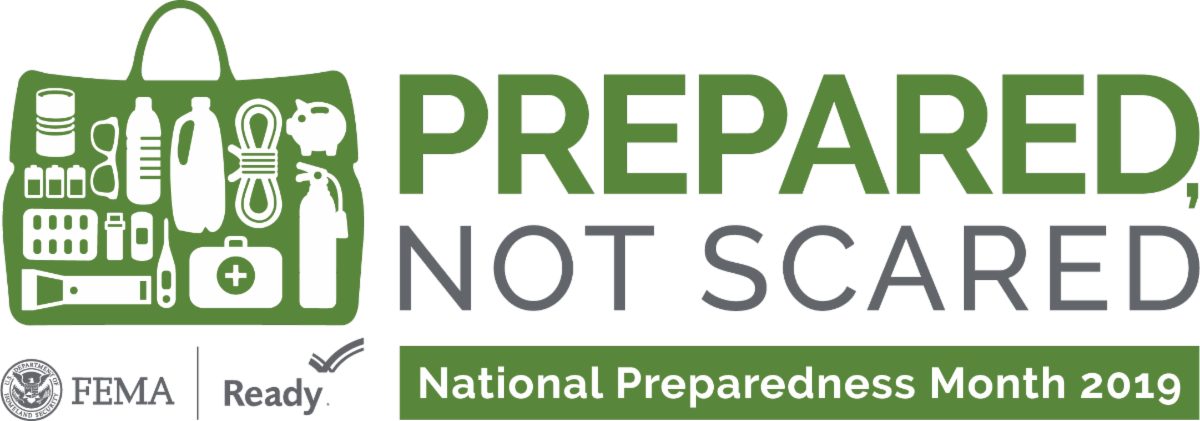
CROMWELL, Conn.—Mass shootings. Tornadoes. Flooding. Now, hurricanes. It seems every community in our country has experienced some kind of disaster, tragedy or emergency event this year. We hear about them on the news and the question we always ask ourselves is: would we know what to do if that were to happen here in our home or in our community?
National Preparedness Month, sponsored by the Federal Emergency Management Agency, is part of a governmental effort to strengthen the United States’ preparedness capabilities from terrorist attacks to natural disasters. Better Business Bureau is proud to partner with FEMA and the Department of Homeland Security (Ready.gov) to offer tips on how to fully prepare for all types of disasters.
Save for an Emergency
On average, most Americans don’t have $400 in savings, according to the Federal Reserve. While it’s important to be financially prepared for any type of disaster, having access to personal, financial medical and other records is crucial to a quick recovery.
Consider saving money and storing it in an emergency savings account, as well as leaving a small amount of cash at home in a safe place. If a disaster strikes, ATMs and credit card machines may stop working, leaving cash as the only option.
Gather all financial and critical personal, household and medical information and store it in a safe, yet easily accessible place.
Pull together all property, health and life insurance, and review your existing policies for the amount and extent of coverage to ensure that what you have in place is enough for you and your family.
Watch Out for "Storm chasers"
No matter how much you prepare, you might have some damage to deal with after a natural disaster.
“Storm chasers” are contractors who seek to take advantage of disasters and get consumers to make quick and potentially uninformed decisions. Although not all storm chasers are scammers, they may lack the proper licensing for your area, offer quick fixes, or make big promises they can’t deliver.
Always check BBB.org before hiring a contractor especially after storm damage or a natural disaster.
Check Your Insurance Coverage
According to FEMA, more than half of all homeowners in the United States do not carry adequate homeowners insurance to replace their home and its contents should a catastrophic loss occur. In fact, when was the last time you checked your insurance policy?
Insurance is your first line of defense, which is why you should check your insurance coverage, and review your policy.
Make and Practice Your Plan
Disasters don’t plan ahead, but you can. Start by making an emergency plan with everyone in the home.
Put together a plan by discussing four different questions with your family, friends or household to begin your emergency plan. Discuss how you will receive emergency alerts and warnings, what your shelter plan is, your evacuation route and the household communication plan.
It’s best to practice your escape plan with your family, including animals, at least twice a year so you are fully prepared when disaster strikes.
Learn Life Saving Skills
Learning basic home maintenance skills can protect your home and your family.
Learn how to turn off utilities like natural gas and electricity, and how to test and replace smoke alarms. It’s recommended to test smoke alarms every month and to replace them every 10 years.
You should also know the ways to keep your home safe from cooking, heating, and electrical fires.
September shouldn’t be the only month you are prepared for a disaster since there are 11 other months in the year during which a disaster of any kind can strike. However, you can have some peace of mind knowing you’re ready by having a plan in place, practicing that plan and being ready for it. Learn more by visiting ready.gov or fema.gov for more information.
W